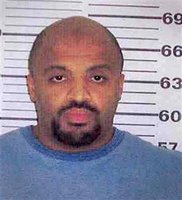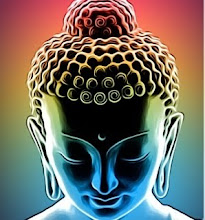
Updated: 7:25 p.m. ET May 3, 2006
ALEXANDRIA, Va. - Al-Qaida conspirator Zacarias Moussaoui escaped the death penalty Wednesday as a jury decided he deserved life in prison instead for his role in the bloodiest terrorist attack in U.S. history. “America, you lost,” Moussaoui taunted.
After seven days of deliberation, the nine men and three women rebuffed the government’s appeal for death for the only person charged in this country in the four suicide jetliner hijackings that killed nearly 3,000 people on Sept. 11, 2001.
Three jurors said Moussaoui had only limited knowledge of the Sept. 11 plot, and three described his role in the attacks as minor, if he had any role at all.
Comment:
Moussaoui was wrong. Today, as a result of the jury's decision to sentence him to life in prison, America won. The sentence is a triumph of compassion, integrity and restraint over anger, hatred and revenge.
I will not launch into a lengthy dissertation about the death penalty, which I felt ambivalent about for many years and now oppose.
But I will say that this was the right decision for three reasons:
1) It shows that we are a nation of reasoned justice, not mob justice. Executing Moussaoui for failing to step forward with knowledge of the 9/11 plan would have been a revenge killing, intended not to punish him for what he did but to avenge the deaths of nearly 3,000 innocent lives taken in the 9/11 terrorist attacks.
2) It prevents us from sliding farther down the slippery slope of giving up civil liberties in exchange for perceived security. Speaking for the moment as a lawyer (I can't help it), it is worth noting that, had Moussaoui been given the death penalty, it would be the first time in the history of American jurisprudence that someone was executed for an act of omission. Remember, Moussaoui was charged with six counts of conspiracy, and the basis of the government's recommendation of the death penalty was that had Moussaoui (who was incarcerated on September 11, 2001) stepped forward and told authorities about the plot, the attacks would not have occurred. He would not have been executed for what he did, but what he didn't do.
3) It shows the world that we cannot be shaken from our core principles, even in the face of danger. In Israel, the day after a suicide bombing, the markets are full of shoppers, the buses are full of riders, and the sidewalk cafes are full of diners. Israelis refuse to allow the risk of terrorism--which happens there every couple of months--to change their way of life. So, too, by adhering to the principles of due process and trial by jury, we have shown the other peoples of the world that we will not be driven to barbarity by the threat of barbarity. Our commitment to our principles should be unwavering.
I hope that the Moussaoui sentence is a bellweather, a sign that we Americans are finally waking up and realizing that, if given the choice, it is better to be more free and less safe than less free and more safe.
May freedom ring!
Namaste.

2 comments:
Amen. :-)
Dharmasattva,
I disagree with your reasoning.
1) It is not uncommon for someone to be sentenced to death for an act of omission. A co-conspirator to a mass murder would commonly be sentenced to death for allowing the plot to go forward.
Had the jury found Moussaoui a more than minor player in the plot, it seems they would have given him the death sentence. Possibly, had the prosecution not had a major part of their case ruled inelligible, they would have better made the case on Moussaoui's involvement. Had that happened, I don't think that you could say that this same levelheaded jury was a mob out for revenge.
2) Again, I don't think that what you wrote is true: "it would be the first time in the history of American jurisprudence that someone was executed for an act of omission" A co-conspirator to a planned murder is obligated to foil the enterprise, otherwise he is as fully guilty of the crime as those who executed the act.
What a person doesn't do can be as important as what someone does. It is criminal [and immoral] not to act to save another's life if you can do so without harming yourself.
3) A twelve-member jury acted today; America didn't. I don't think that it says anything to the world about the country's barbarity or principles of justice. There are still three senior al-Qaeda planners being held out of the country who were tortured for information and will not be brought to a public trial. Indeed, no one knows what will happen to them.
As for this statement -- "it is better to be more free and less safe than less free and more safe" -- I would say that there is always tension between safety and freedom. It is a delicate balance. For now, I will continue to wear my seatbelt in the car.
Post a Comment